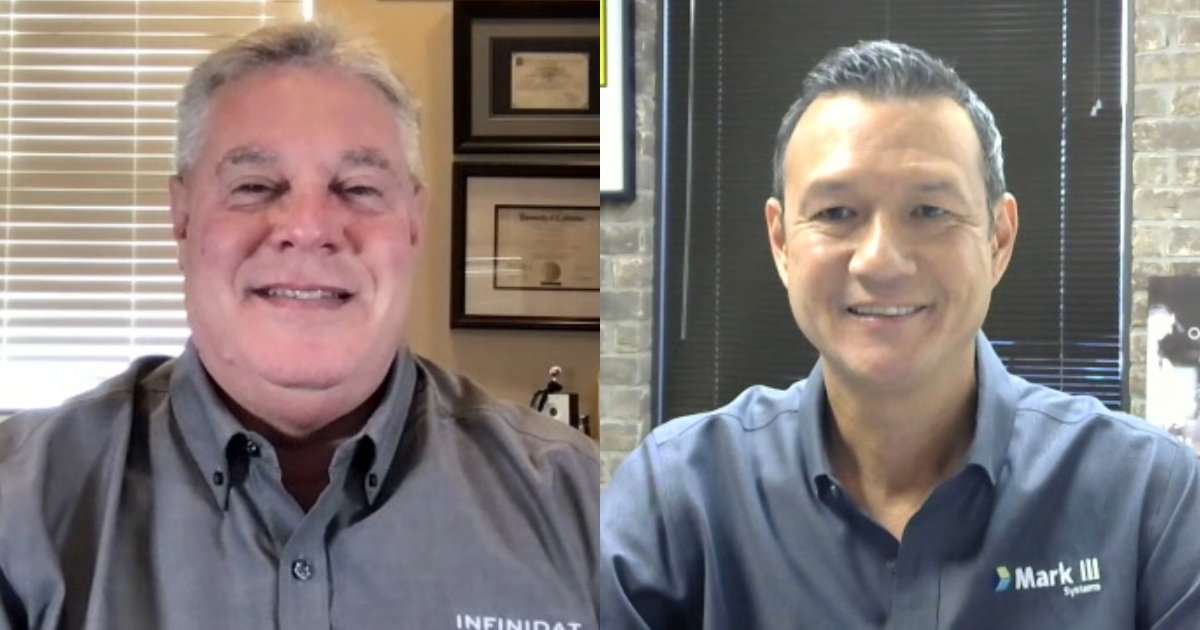Nineteen years ago this month, criminals perpetrated the biggest physical theft this century, stealing over $100 million worth of diamonds and jewels from the Antwerp World Diamond Centre. The Centre kept its assets in a supposedly impenetrable vault. But the thieves still made it in, and out again, undetected.
In the information technology world, storage holds the position of the “safe vault.” This is where companies keep their data resources, which are the digital-era equivalent to diamonds. And just like the infrared sensors, seismic detectors and multi-control locks used to secure physical assets, digital companies invest in multiple security tools to protect their data vaults.
But the lesson learned by the World Diamond Centre is the same for virtualized data protection: No security measures are strong enough to completely protect valuable resources. What can thwart cybercriminals is the ability to recover securely stored data in the event of a breach. This is the goal of Infindat Inc.’s InfiniGuard enterprise backup appliance, which boosted its cyber-resilient superpowers in a major update announced today.
“Even two petabytes of data can be available in 15 to 30 minutes, and then the backup admin can restore from that backup dataset,” said Eric Herzog (pictured, left), chief marketing officer of Infinidat Ltd.
Herzog spoke with Dave Vellante, host of theCUBE, SiliconANGLE Media’s livestreaming studio during theCUBE’s special presentation “InfiniGuard Cyber Resilience: Infinidat’s New Cybercrime-Fighting Solutions,” which marked Infinidat’s unveiling of new cyber-resilient features in its InfiniGuard high-end enterprise backup appliance.
Stan Wysocki (pictured, right), president of Infinidat customer Mark III Systems Inc., joined Herzog and Vellante for the second half of the event to discuss how Mark III Security’s enterprise customers are addressing data security. (* Disclosure below.)
InfiniGuard aims to calm the fears of CEOs stressing about cybercrime
Cybersecurity is the number one concern of Fortune 500 CEOs, according to a 2021 survey. As the importance of internal and external end-user engagement rises, so does company reliance on data to power artificial intelligence and provide a holistic view of that user interaction, which in turn increases the value of that data to the company and to criminals.
“Cybersecurity becomes extremely important, not just because of the technical skills of the hacker are getting better and better, but because we’re becoming more reliant on the data that we have,” Wysocki said.
On average, a company has an arsenal of 45 security tools to prevent, combat and recover from cyberattack. But, an excess of point tools hinders the ability to respond. An IBM study found that companies with more than 50 tools were 8% less likely to detect an attack and had a 7% lower response rate.
The answer? Built-in security from those data “bank vaults” — the data storage companies themselves.
“Data storage companies have an important role to play in fighting cybercrime,” Vellante stated. “Ultimately, they … are responsible for storing and protecting the data that cybercriminals are targeting to steal or encrypt in an effort to hold companies hostage in a ransomware attack.”
Infinidat is taking this responsibility seriously. InfiniGuard was originally launched as part of a corporate renaissance within the company that included bringing on new executive management and evolving its product portfolio. The company’s 2021 results prove the makeover has been successful.
“We increased our bookings over 40% year to year. Even in Q4, we increased our bookings over 68%,” Herzog stated.
Twenty-five percent of Fortune 50 companies are now Infinidat customers, using one or more of the company’s three solutions: the InfiniBox primary storage solution for mixed application workloads, InfiniBox SSA ultra-high performance all-flash array, and the InfiniGuard backup and disaster recovery solution. The company also received a host of awards for its enterprise storage portfolio in 2021, including being named a leader in the Gartner Magic Quadrant for Primary Storage for the fourth year in a row.
Today’s InfiniGuard announcement adds more fuel to Infinidat’s ongoing success streak and brings the company’s commitment to cybersecurity front and center.
Unveiling a new level of enterprise-grade cyber resilience
The upgrades to InfiniGuard include what Herzog refers to as “subsets of cyber resilience.” Grouped as the trademarked InfiniSafe technology, these are immutable snapshots, logical air gapping, fenced/isolated networks, and rapid recovery time.
“The key is focused on cyber resilience with what we call our InfiniSafe technology,” Herzog said.
In a short video, he defines cyber resilience as a company’s level of resistance to cyberattack. “It’s when, not if you’ll be attacked,” Herzog stated, underscoring the reality of today’s cybersecurity landscape.
Preparing for the inevitable attack requires a three-pronged approach, according to Herzog. One prong is traditional castle-and-moat security to try and keep the bad guys out. Another is security patrols to catch them when they do enter. And the third is having cyber-resilient data storage for fast recovery.
Breaking down the subsets within InfiniSafe, Herzog described the importance of immutable snapshots in the case of cyberattack. Secondary storage is one of the main targets of criminals, and if they don’t control the back up, the company can just restore from it. As the name suggests, immutable snapshots are data backups frozen in time.
“Can’t delete them, can’t change them, can’t alter them,” Herzog said.
Adding to the security is the ability to air-gap the snapshots from the management framework or schema. Inside each InfiniGuard appliance is a technology the company calls data deduplication engines, or DDEs. Normally, these would have access to alter a backup data set, but by creating the logical air-gap, the DDEs are divorced from the snapshots and cannot alter their characteristics, according to Herzog.
“In short, we take that management schema away and create this separation,” he said.
The company has a tradition of doing things differently, and its InfiniGuard solution is no exception. The solution creates a fenced/isolated network where data backups can be examined post-attack to find the most recent clean version without risk of exposure.
“We set up this isolated fence network in which to perform that forensic analysis to give you the appropriate good recoverpoint,” Herzog stated.
Mark III Systems has a customer that paid out on a public ransomware attack before moving to Infinidat’s solutions. Now, Infindat is their “de facto, standard storage platform,” according to Wysocki. “This is one of those examples of the very technical discerning customer, that really demands excellence,” he said. “They love the availability and the resiliency, and when it comes to the cybersecurity since they’ve gone onto this platform, they feel much more comfortable.”
InfiniGuard enables data environment recovery in 30 minutes or less
The purpose of the InfiniSafe technology is to render ransomware attackers impotent by providing almost instantaneous recovery of the entire data environment in the event of a loss. This works not only when data is hijacked by bad actors, but when it is destroyed by a natural disaster. This is an ability that is unique to Infinidat, according to Herzog.
“Whether it be purpose-built backup competitors or whether you look at primary storage competitors, almost no one talks about the speed of their recovery. And the one or two that do, talk about recovering the data set. We recover the entire environment,” he said.
Fifteen to 30 minutes is the timeline Infinidat gives from the moment the third-party backup becomes available to full operational restore. This figure is independent of the data set size, according to Herzog.
InfiniGuard is designed to integrate with any backup vendor the customer chooses, including Commvault Systems Inc., Veeam Software Corp., Veritas Technologies LLC, IBM Spectrum Protect, and even direct database connection to Oracle Corp.’s Recover Manager.
Alongside providing data cyber resilience, InfiniGuard’s latest upgrade increases system performance from 74 terabytes per hour to up to 180 terabytes per hour. This speeds backup times by up to 50% and improves performance for primary applications, servers and storage. The upshot is lower CapEx and OpEx costs, according to Herzog.
A real-life example of this comes from a major European client of Mark III Systems that went from operating 14 purpose-built backup appliances split across two data centers to just two Infinidat boxes, one in each data center. The company does local backups within the data center and then replicates the environment from one data center to the other so that both are simultaneously active data centers and disaster recovery backups.
“[Infinidat] is not only providing that data protection and cyber-resilience technology, but doing it in a cost-effective way,” Wysocki said.
Another Mark III Systems customer, this one a global financial services provider, increased its daily backup number from 30,000 to 90,000 after switching to Infinidat.
“Having an environment like this means the CSO and his team can focus on preventing attacks, while they’re very confident that their infrastructure team can handle anything that slips by them,” Wysocki said.
Here’s the complete livestream program, part of SiliconANGLE’s and theCUBE’s coverage of the “InfiniGuard Cyber Resilience: New Cybercrime Solutions” event. (* Disclosure: TheCUBE is a paid media partner for the InfiniGuard Cyber Resilience: Infinidat’s New Cybercrime-Fighting Solutions event. Neither Infinidat Ltd., the sponsor of theCUBE’s event coverage, nor other sponsors have editorial control over content on theCUBE or SiliconANGLE.)




